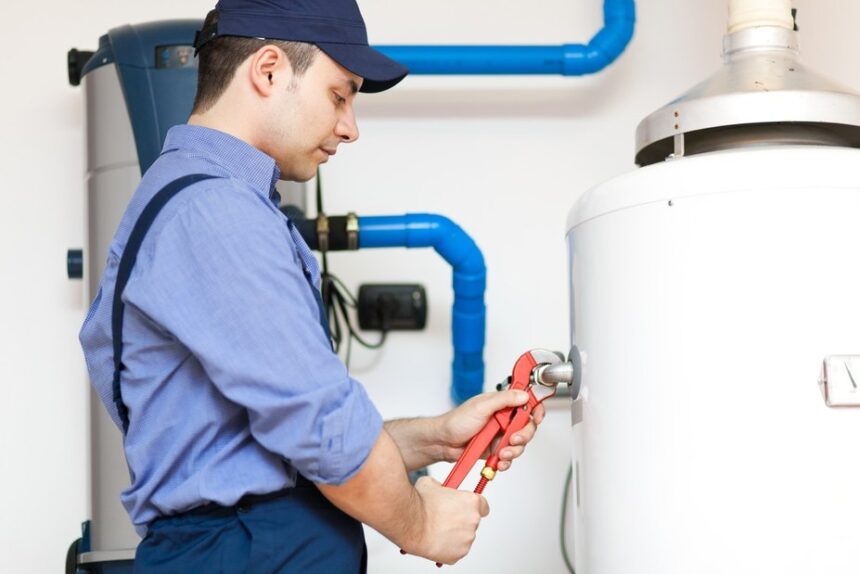A reliable water heater is one of the most essential appliances in any home. From hot showers to running dishwashers and laundry, it ensures comfort and convenience. But like any household system, a water heater has a limited lifespan. When it starts to fail, water heater replacement becomes necessary to restore efficiency and safety.
This guide covers everything homeowners need to know about replacing a water heater from signs that it’s time for an upgrade, to the types of systems available, costs, and expert tips.
Why Water Heater Replacement Matters
Over time, water heaters lose efficiency, consume more energy, and can even become hazardous. An old or malfunctioning unit can:
- Increase monthly utility bills.
- Deliver inconsistent hot water supply.
- Leak and cause property damage.
- Pose safety risks due to corrosion or gas leaks (in gas models).
Investing in a timely replacement not only ensures consistent hot water but also improves your home’s energy efficiency and value.
Signs You Need a Water Heater Replacement
It’s not always easy to know when your system is failing. Here are some common indicators:
- Age of the Unit
Most traditional tank water heaters last 8–12 years. If yours is older, it’s time to consider a replacement. - Rusty or Discolored Water
Rusty water coming from hot taps indicates corrosion inside the tank, a clear sign your system is deteriorating. - Inconsistent Heating
If your showers turn cold halfway through, the unit is struggling to meet demand. - Unusual Noises
Rumbling, banging, or popping sounds often mean sediment buildup, which reduces efficiency and damages the tank. - Frequent Repairs
Repeated breakdowns cost more in the long run than installing a new system. - Leaks Around the Tank
Any visible water pooling near the heater is a sign the tank has cracked.
Choosing the Right Water Heater Replacement
When replacing your water heater, you’ll encounter multiple options. Each has its benefits depending on your home’s needs.
1. Tank Water Heaters
These are the most common systems, storing hot water in a tank. They are affordable and easy to install. If you want to learn more or explore your options, check out this resource on water heater replacement.
2. Tankless (On-Demand) Water Heaters
Instead of storing water, these units heat it instantly as needed. They are energy-efficient and save space, but the upfront cost is higher.
3. Hybrid Water Heaters
Combining tank and tankless technology, hybrids are highly efficient but require a larger initial investment.
4. Solar Water Heaters
Eco-friendly and cost-saving in the long run, though installation costs can be significant.
Cost of Water Heater Replacement
The total cost depends on several factors:
- Type of system (tank vs. tankless).
- Size/capacity of the unit.
- Installation complexity (gas lines, electrical upgrades, venting).
- Labor costs in your area.
On average:
- Tank systems: $800–$1,500 (including installation).
- Tankless systems: $1,500–$3,000+.
While tankless units cost more upfront, they can save hundreds of dollars annually on energy bills.
Professional vs. DIY Replacement
Some homeowners consider DIY installation, but water heaters involve plumbing, gas lines, and electrical work areas best left to professionals. Improper installation can lead to:
- Gas leaks or carbon monoxide hazards.
- Water damage from faulty connections.
- Reduced efficiency and invalid warranties.
Hiring certified professionals ensures compliance with safety codes and guarantees long-term reliability.
Tips for a Successful Water Heater Replacement
- Choose the right size based on your household’s hot water demand.
- Consider energy efficiency ratings (look for ENERGY STAR® certified units).
- Check for rebates or incentives for upgrading to efficient models.
- Schedule annual maintenance to extend the lifespan of your new unit.
- Work with licensed plumbers/technicians for installation and warranty coverage.
Benefits of Replacing Your Old Water Heater
- Energy Savings – Newer models use up to 20–30% less energy.
- Consistent Hot Water – No more running out mid-shower.
- Increased Property Value – Buyers appreciate modern, efficient systems.
- Peace of Mind – Reduced risk of leaks, breakdowns, and costly emergencies.
Conclusion
A failing water heater is more than just an inconvenience; it can disrupt your daily life, increase costs, and even cause property damage. By recognizing the signs early, choosing the right system, and working with professionals, you’ll ensure reliable hot water for years to come.
If your system is old, inefficient, or constantly breaking down, now is the perfect time to explore your water heater replacement options. Investing in a new unit guarantees comfort, energy savings, and peace of mind for your household.
FAQs
- How long does a water heater replacement take?
Most replacements are completed in 2–4 hours, depending on complexity. - Should I replace my water heater before it fails?
Yes. Proactive replacement prevents unexpected breakdowns, leaks, and water damage. - How do I choose between a tank and tankless system?
Consider your budget, space, and household size. Tankless is best for long-term savings and unlimited hot water, while tanks are more affordable upfront. - Do new water heaters require maintenance?
Yes. Annual flushing and inspection extend lifespan and efficiency. - Can I switch from gas to electric (or vice versa)?
Yes, but it requires additional plumbing and electrical work, making installation more expensive.

